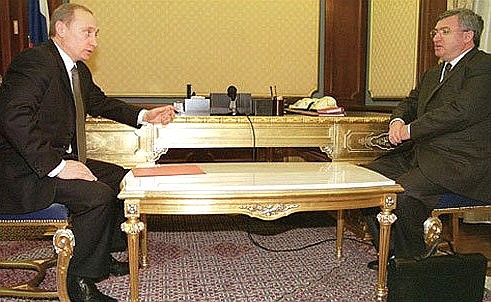
The President praised the completed first stage of the Baltic Pipeline System (BPS) and emphasised its importance for the country. He noted that Russia was building its own crude delivery routes from West Siberia, Urals, Volga area and even some CIS countries, including Kazakhstan.
In his conversation with Mr Vainshtok, the President called attention to the need to have a fully depoliticised project. He said that today it was absolutely clear that the BTS and its future development met fully and completely both Russia’s interests and those of its partners in the West. He stressed that Russia was pursuing an energy dialogue with the European Union and would fit all its transport projects into this dialogue.
President Putin pointed out that the BTS must be economically attractive both to Russian market players and to foreign partners. That meant, he said, the port must function efficiently, ships served well and fairly, and prices and fees be as low as those by competitors in other countries.
The President pointed to the need to coordinate pipeline operations with the policies and practices of other transport companies, especially the Ministry of Railways.
He expressed his intention to have a separate meeting with representatives of the Ministry of Railways, the Ministry of Transport and Transneft for a comprehensive discussion of these issues.
In the course of the conversation the President also showed interest in other Transneft projects
Mr Vainshtok told the President that in January the BTS would reach its planned capacity of 900,000 tonnes, against an annual target of 12 million tonnes. He did not rule out that the BTS would operate without so-called ‘rush days’, on a round-the-year basis. Transneft, he said, was also planning to start the construction of the BTS’s second stage in June of that year.